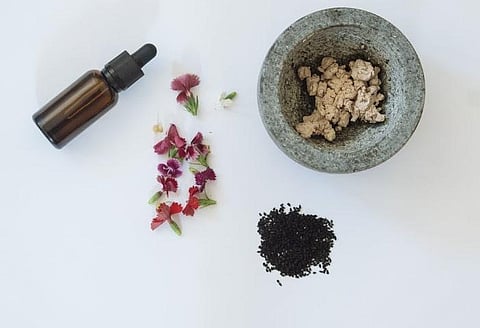

Last December, it was said that grapeseed extract can reverse your age. This March, the New York Times reported how understanding anti-ageing techniques of centenarian tortoises could be the solution. In April, the humble coconut milk cream was ostensibly the ultimate treatment to turn back the clock. Around the same time, fish skin gelatine was hailed as the new miracle drug. But quashing all such quick-fix claims are scientists in Japan. They have developed a vaccine that targets the body’s senescent cells. These are the cells that eventually stop multiplying, but can still cause chronic inflammation and disease as they accumulate in our tissues.
While extending lifespan has always been the holy grail of medical research, there have been no treatments that can exclusively target these senescent cells. The anti-ageing vaccine developed by Dr Tohru Minamino after painstaking research of over 20 years in the laboratory of Harvard Medical School has been successfully tested on mice. Will it also be a reliable treatment to combat age-related diseases. Can we call it the game-changer yet?
In the December 2021 edition of the medical journal Nature Ageing, Dr Minamino writes, “With ageing, senescent cells or zombie cells accumulate in the body and refuse to die even when they no longer divide. These cells secrete harmful chemicals that trigger the onset of diabetes, osteoporosis, atherosclerosis, and Alzheimer’s disease.” Dr Minamino, also professor and chairman of cardiovascular biology and medicine at Juntendo University in Tokyo, is the lead author of the study about the anti-ageing vaccine. Currently, the team has moved the vaccine into human trials and exploring additional vaccines that target different types of senescent cells. These cells may have different surface proteins that can be targeted by the immune system, Dr Minamino said.
Dr JS Kohli, Consultant and Plastic Surgeon at Elina Aesthetic & Laser Centre, Ludhiana, says, “The anti-ageing vaccine research carried out in mice by the Japanese holds promise though it is not certain whether this will translate into actual usage. Ageing is complex and multifactorial. Moreover, scavenging of senescent cells may have other unintended consequences. Although everyone is keen on the elixir of youth, it may never be available.”
The global life expectancy increased over the past decade despite a brief dip in 2020 due to the Covid-19 pandemic. However, the rate of age-related chronic diseases such as cancer, diabetes and heart disease has risen along with it.
Dr Amit Gupta, Founder-Director of Divine Cosmetic Surgery, Delhi, believes that such studies should not be done because this is an act of playing out against nature. “The earth will get overpopulated with an ageing and unproductive population,” he warns. Work on making the existing life more healthy, he suggests.
Dr Divyasree, Co-founder of Dermiq skin clinic in Hyderabad, welcomes the initiative. “This study is promising. I am excited for it to become a potential game-changer in how we approach anti-ageing treatments. It’s a long way to go but the way ahead is full of promise.” Off with grapeseed extract, coconut milk and centenarian tortoises to stay young. The vaccine could be our saviour.